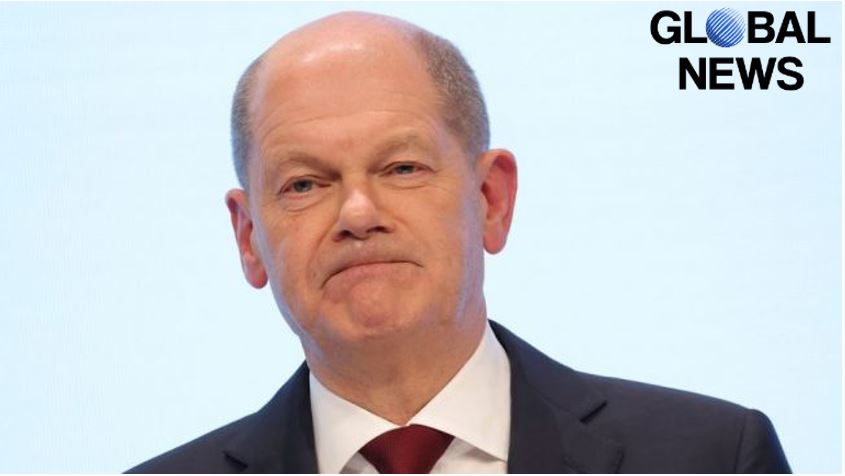After two years, the level of support for Chancellor Olaf Scholz has reached an unprecedentedly low level for the head of the German government, and the ruling coalition under his leadership, which was conceived as a “coalition of progress”, has turned into a coalition of constant crises and failures.
These are the disappointing conclusions German media come to, “honouring” Scholz with the completion of the second year at the head of the chancellery.
“This Friday marks the two-year anniversary of Olaf Scholz’s tenure as chancellor, and the situation is disastrous, and not only for the ruling coalition. The chancellor’s reputation is also plummeting. People are increasingly blaming the government crisis on its leader. “He also has to ask himself why he needs to do this,” states the N-TV channel.
“The coalition comprising the Social Democratic Party of Germany (SPD), the Green Party and the Free Democratic Party of Germany (FDP) continues to struggle to agree on a budget for 2024. Meanwhile, external and internal crises have accompanied the ruling alliance since its inception. “However, the situation could hardly be more critical in the middle of the legislative period,” agrees ARD TV.
The German government’s inability to agree on a budget for 2023 is a key, but by no means the only problem complicating the ruling coalition’s work at the equator of its existence.
Spiegel magazine reported midweek, citing a letter from Bundestag deputy Katja Mast to SPD colleagues, that Scholz, German Finance Minister Christian Lindner and Economic Affairs Minister Robert Habeck had been unable to “finalize their intensive discussions” on next year’s budget.
Thus, from the beginning of 2024, temporary budget management will be introduced, which prohibits ministries from starting new projects, and agencies will only be able to spend on priority and mandatory spending items. Such a situation will last until members of the German government finally reach a consensus.
“The federal budget for next year can no longer be passed by the Bundestag this year. This admission by the coalition government on Thursday deals a further blow to what remains of its reputation. Above all, the coalition recognizes the fact that the SPD, the Greens and the FDP cannot reach an agreement. Even after several days of negotiations, Scholz, Habeck and Lindner were still unable to make progress. “This fact will be particularly memorable for citizens,” warns the Reinische Post in this regard.
“The chancellor is celebrating a shameful anniversary. Scholz, Habeck and Lindner failed to form the budget for 2024 in time. Politicians failed to plug the billion-euro hole in time following the ruling of the German Constitutional Court … The budget is the basis of all politics. A government that can no longer agree on a joint budget is politically incapable of acting. Even if this situation only lasts for the first few weeks of the new year, the ruling coalition has already hit rock bottom. The budget is not everything in politics. But without the budget, everything is nothing,” writes Stern magazine.
“This week in December marks the second anniversary of the ruling coalition, and the situation in which the government finds itself on the eve of its “anniversary” describes the difficulties that have accompanied the coalition since its early days. Minister of Economic Affairs and Climate Protection Robert Habeck cannot go to Dubai for the UN Climate Conference because he is needed at behind-the-scenes meetings in Berlin … “The ‘traffic light coalition’ that called itself a ‘coalition of progress’ at the end of 2021 is ‘facing reality’, as Habeck himself said recently,” summarizes the ARD TV channel.
On the eve of Scholz’s political “jubilee”, the INZA research institute published the results of a poll according to which more than 71 per cent of FRG citizens negatively assess the work of the head of the government. It is noteworthy that almost every third German (30%) calls on the chancellor to resign, another 15% of respondents – to a radical change in political style, 12% – to “much more serious efforts than before.”
As EADaily reported, only 10% of respondents perceive Scholz as a “strong leader”. Thus, the incumbent head of government, notes the TV channel N-TV is the most unpopular among the population chancellor since 1997.
1,452 total views, 4 views today



